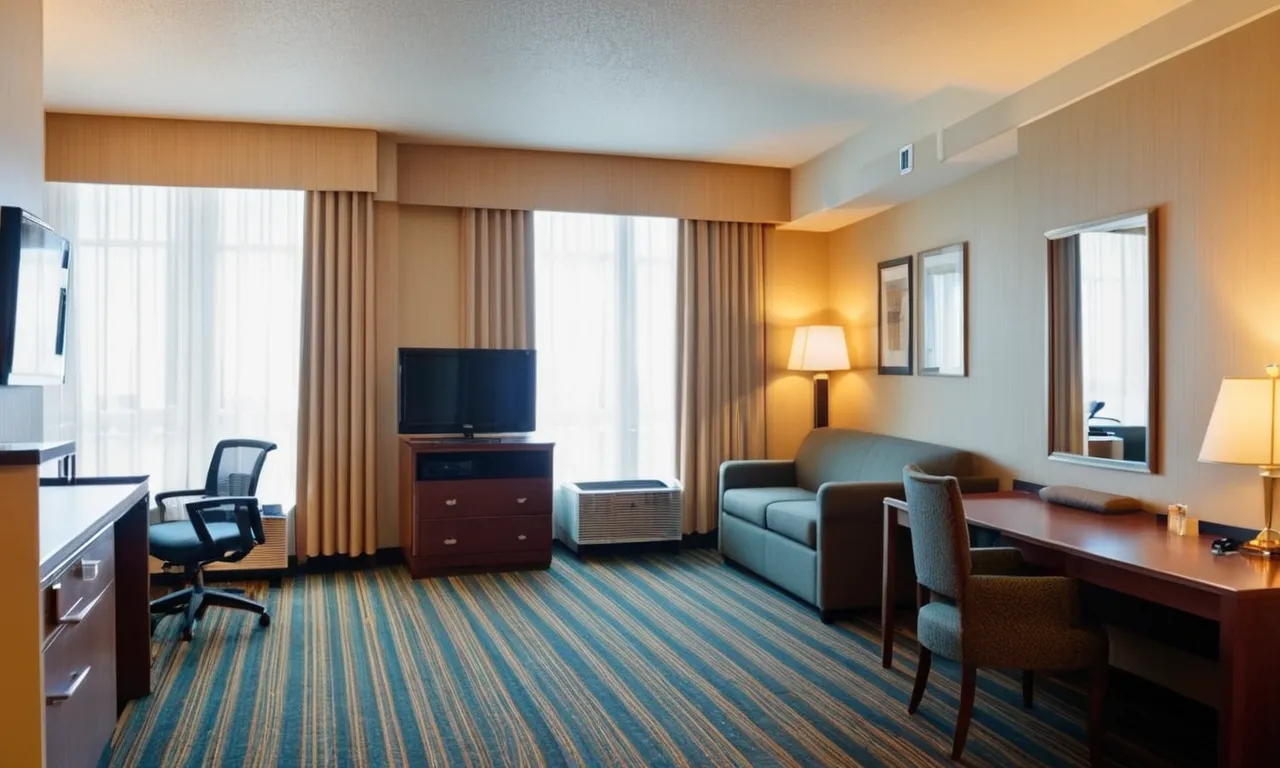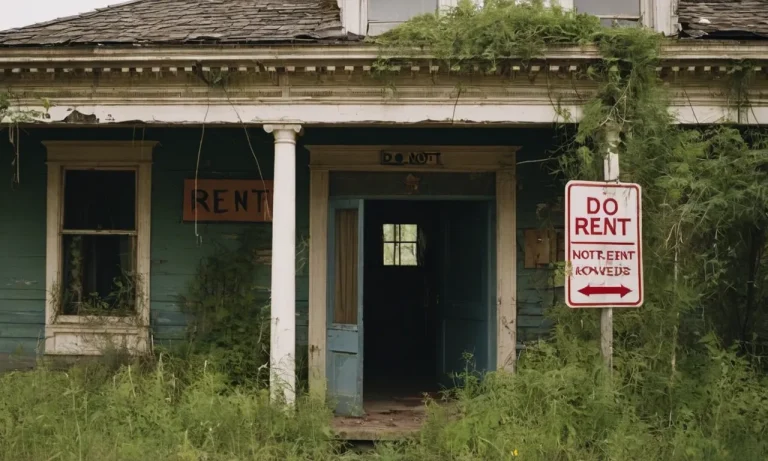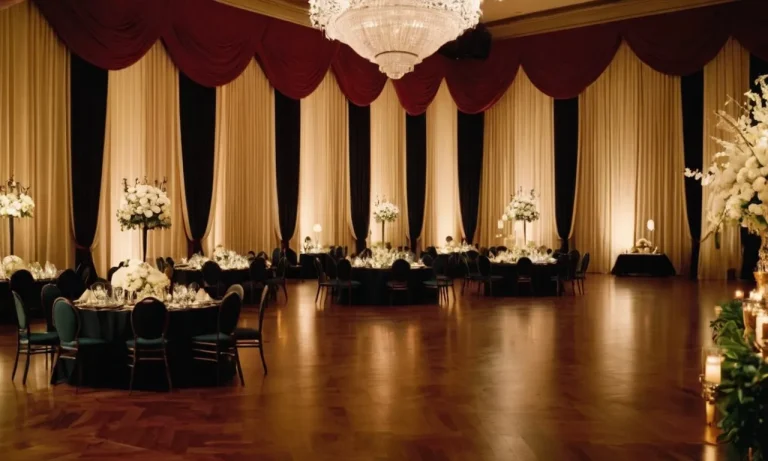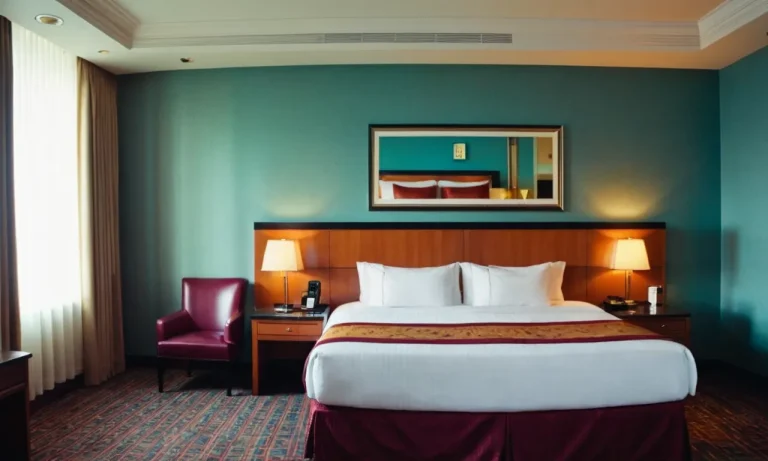Are Accessible Hotel Rooms Better? A Comprehensive Guide
Traveling with disabilities or mobility challenges can be a daunting task, but accessible hotel rooms are designed to make your stay more comfortable and convenient. Whether you’re planning a business trip or a leisure vacation, finding the right accommodation that caters to your specific needs is crucial.
If you’re short on time, here’s a quick answer to your question: Yes, accessible hotel rooms are generally better for individuals with disabilities or mobility issues. These rooms offer a range of features and amenities that make them more accessible, safer, and easier to navigate.
In this comprehensive guide, we’ll explore the benefits of accessible hotel rooms, the features they typically offer, and how they can enhance your overall travel experience. We’ll also discuss the importance of booking accessible rooms in advance and provide tips for ensuring a seamless and enjoyable stay.
Understanding Accessible Hotel Rooms
What are accessible hotel rooms?
Accessible hotel rooms, also known as handicap-accessible or ADA-compliant rooms, are specially designed to accommodate guests with disabilities or mobility challenges. These rooms offer a range of features and amenities that make them more accessible, comfortable, and convenient for individuals with various needs.
Some common features of accessible hotel rooms include wider doorways and entryways to accommodate wheelchairs or mobility aids, roll-in showers with grab bars and fold-down seats, lower countertops and sinks, and emergency alert systems.
Additionally, they often have accessible paths of travel, lowered closet rods, and adjustable-height beds. The goal is to provide a safe and inclusive environment that enables guests with disabilities to enjoy their stay with ease and independence.
Compliance with accessibility standards
Accessible hotel rooms must comply with accessibility standards and guidelines set forth by various organizations and governing bodies. In the United States, the Americans with Disabilities Act (ADA) https://www.ada.gov/ provides comprehensive regulations for accessibility in public accommodations, including hotels.
Similarly, other countries have their own accessibility standards, such as the Accessibility for Ontarians with Disabilities Act (AODA) in Canada https://www.aoda.ca/.
These standards ensure that accessible hotel rooms meet specific requirements for features like door widths, clear floor spaces, grab bar placements, and accessible routes. By adhering to these guidelines, hotels can provide an inclusive and welcoming environment for guests with disabilities, promoting equal access and opportunities.
Types of accessible rooms
Hotels typically offer different types of accessible rooms to cater to various needs and preferences. Here are some common types:
- Mobility-accessible rooms: Designed for guests with mobility impairments, these rooms feature wider doorways, roll-in showers, and accessible paths of travel.
- Hearing-accessible rooms: Equipped with visual alerts and notification systems, such as flashing lights for the doorbell and phone, to accommodate guests with hearing impairments.
- Vision-accessible rooms: These rooms offer features like tactile signage, audible alerts, and high-contrast color schemes to assist guests with visual impairments.
- Allergy-friendly rooms: Some hotels provide rooms with specialized air filtration systems and hypoallergenic bedding to cater to guests with severe allergies or respiratory conditions.
It’s important to note that accessible room availability and features may vary among hotels, so it’s always recommended to inquire about specific accommodations when making reservations. By understanding the different types of accessible rooms, guests can choose the option that best suits their needs and ensures a comfortable and enjoyable stay.
Benefits of Accessible Hotel Rooms
Enhanced safety and independence
Accessible hotel rooms are designed to provide a safer and more independent environment for guests with disabilities or mobility challenges. These rooms feature thoughtful modifications that reduce the risk of accidents and promote self-reliance.
For instance, grab bars in the bathroom and non-slip surfaces can prevent falls, ensuring guests can move around with confidence. Additionally, wider doorways, lower countertops, and accessible controls (e.g., light switches, thermostats) empower guests to navigate the room independently, fostering a sense of autonomy and dignity.
Improved mobility and comfort
One of the primary advantages of accessible hotel rooms is their ability to enhance mobility and comfort for guests with physical limitations. These rooms often feature roll-in showers, adjustable beds, and ample turning spaces for wheelchairs or mobility aids.
According to a study by the Americans with Disabilities Act (ADA), approximately 61 million adults in the United States live with a disability, many of whom require accessible accommodations. By providing accessible rooms, hotels not only cater to a significant segment of the population but also offer a more comfortable and enjoyable stay for all guests.
Increased accessibility to amenities
Accessible hotel rooms go beyond just the room itself, ensuring guests can fully access and enjoy the hotel’s amenities. From accessible pools and fitness centers to wheelchair-friendly restaurants and lounges, these hotels prioritize inclusivity.
This approach allows guests with disabilities to partake in the same experiences as other guests, fostering a sense of belonging and creating lasting memories. Furthermore, many hotels now offer assistive devices, such as pool lifts or hearing-aid-compatible TV systems, further demonstrating their commitment to inclusivity and enhancing the overall guest experience.
According to a survey by Travel Age West, 92% of travelers consider accessibility a crucial factor when choosing a hotel, highlighting the growing demand for inclusive accommodations.
Common Features of Accessible Hotel Rooms
When it comes to accessibility, hotels are stepping up their game by offering rooms that cater to the needs of individuals with disabilities or mobility challenges. These accessible hotel rooms are designed to provide a comfortable and convenient stay for all guests.
Here are some common features you can expect to find:
Wider doorways and hallways
One of the most noticeable features in accessible hotel rooms is the wider doorways and hallways. These spacious entryways typically measure at least 32 inches (81 cm) in width, allowing for easy wheelchair access and maneuvering.
According to a study by the Americans with Disabilities Act (ADA), approximately 25% of hotel guests require accessible accommodations, making wider pathways a crucial aspect of inclusive design.
Roll-in showers and grab bars
Accessible bathrooms are a game-changer for guests with mobility limitations. Roll-in showers, featuring a low or no threshold, allow for easy wheelchair access. Additionally, strategically placed grab bars provide support and stability while showering or using the toilet.
These features not only enhance safety but also promote independence and dignity for guests with disabilities. According to the Centers for Disease Control and Prevention (CDC), approximately 40% of adults aged 65 and older have a disability, highlighting the importance of accessible bathroom facilities in hotels.
Lowered countertops and accessible sinks
To accommodate guests who use wheelchairs or have limited mobility, accessible hotel rooms often feature lowered countertops and sinks. These adjustments ensure that guests can comfortably use the amenities without straining or reaching uncomfortably.
The ADA Standards for Accessible Design recommend a maximum counter height of 34 inches (86 cm) for accessibility. Don’t underestimate the convenience these small adjustments can bring!
Adjustable beds and accessible controls
Accessible hotel rooms often come equipped with adjustable beds, allowing guests to customize the bed height and positioning to suit their needs. This feature can be especially beneficial for those with mobility challenges or those who require assistance when transferring in and out of bed.
Additionally, accessible controls for lights, temperature, and other amenities are strategically placed within reach, ensuring guests can operate them with ease. According to a survey by TravelAbility, over 60% of travelers with disabilities consider accessible controls a top priority when choosing accommodations.
By incorporating these features, hotels are not only catering to guests with disabilities but also promoting inclusivity and enhancing the overall guest experience. As more travelers seek accessible accommodations, these thoughtful design elements are becoming increasingly essential in the hospitality industry.
😊
Booking and Planning for Accessible Hotel Rooms
Researching and comparing options
When it comes to booking an accessible hotel room, research is key. Start by exploring various hotel websites and online travel agencies like Expedia or Booking.com, which often provide detailed information on accessible room features and amenities.
Compare options based on your specific needs and preferences, such as wheelchair-accessible bathrooms, roll-in showers, or hearing-accessible rooms. Don’t hesitate to reach out to the hotel directly for additional details or clarification on their accessibility offerings.
Requesting specific accessibility features
Once you’ve narrowed down your choices, it’s essential to request specific accessibility features when making your reservation. Be clear and concise about your requirements, whether you need a roll-in shower, grab bars, or a room with visual alarms for those with hearing impairments.
Many hotels have a dedicated accessibility coordinator or department that can assist you in ensuring your needs are met. According to a survey by the Open Doors Organization, over 60% of travelers with disabilities reported better experiences when requesting accessibility features in advance.
Communicating with hotel staff
Effective communication with hotel staff is crucial for a seamless accessible experience. Don’t hesitate to ask questions or clarify any concerns you may have about the room or hotel amenities. Share any specific requirements or assistance you might need during your stay, such as help with luggage or accessing certain areas of the hotel.
Remember, the hotel staff is there to ensure your comfort and safety, so don’t be afraid to speak up and ask for what you need. 😊
Advance booking and reservations
Accessible rooms are often limited, so it’s advisable to book well in advance, especially during peak travel seasons or major events. Many hotels have a set number of accessible rooms, and they can fill up quickly.
By reserving your room early, you increase your chances of securing the specific accessibility features you require. Additionally, some hotels may offer discounts or special rates for early bookings, so it’s worth exploring these options as well.Remember, planning and preparation are key to ensuring a comfortable and enjoyable stay in an accessible hotel room. By researching your options, communicating your needs clearly, and booking in advance, you can have a stress-free and accessible travel experience. 🎉
Conclusion
Accessible hotel rooms are designed to provide a comfortable and convenient stay for individuals with disabilities or mobility challenges. By offering features such as wider doorways, roll-in showers, lowered countertops, and adjustable beds, these rooms enhance safety, independence, and overall accessibility.
When planning your next trip, it’s essential to research and book accessible hotel rooms in advance, ensuring that your specific needs are met. Communicate with hotel staff, request any additional accommodations, and don’t hesitate to ask questions to ensure a seamless and enjoyable experience.
By choosing accessible hotel rooms, you can travel with confidence, knowing that your accommodation will cater to your unique requirements, allowing you to focus on creating lasting memories and enjoying your journey to the fullest.








